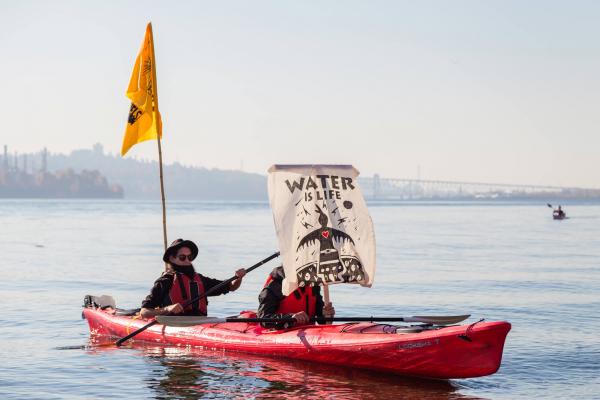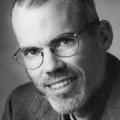SOMETIMES TRAVEL exposes you to new things, and sometimes it reminds you how much is the same the world over.
I’ve just returned from a long organizing expedition from one end of the Pacific to the other: Japan, Australia, New Zealand, British Columbia, the San Francisco Bay. Many of the issues were the same, of course: plans for new coal mines and oil pipelines.
But what really struck me was that almost everywhere I went, Indigenous people are driving the fight. Whether it is battling new coal mines in Australia, protecting the Great Australian Bight from offshore drilling, stopping fracking in New Zealand, battling the Kinder Morgan pipeline headed for Vancouver, or standing up to California Gov. Jerry Brown over the Golden State’s endless oil drilling, native activists are leading the way.
This should come as no surprise. Groups such as Tom Goldtooth’s Indigenous Environmental Network have been at the forefront for decades; younger leaders such as Clayton Thomas-Müller and Melina Laboucan-Massimo have long been raising the alarm about Canada’s tar sands; and in the low-lying islands of the Pacific, great organizers are fighting against rapid climate change in every forum they can find. Winona LaDuke, Pennie Opal Plant, Rueben George—it’s an endless list. But perhaps Standing Rock—the great battle over the Dakota Access Pipeline—helped everyone see the depth and breadth of this leadership. New leaders appeared, and new groups, and arguments that had been too little heard got a much broader airing.
Sovereignty, for one. By now, everyone with a conscience acknowledges that European arrivals to the various new worlds treated those who were already there cruelly and unjustly. But it’s not just history. Even on those lands to which Indigenous people were exiled, the power to make decisions as the nations they are has been ignored, overridden. The exercise of that sovereignty won’t always please environmentalists—some tribes mine coal on their land, for instance. But it is a bottom-line requirement of human rights.
And it goes deeper than that. The deep Indigenous commitment to place, the understanding that local landscapes and wildlife and plants carry spiritual significance, is proving crucially important in the defense not just of those places but of the whole planet. In fact, the messages of our most ancient wisdom traditions mesh powerfully with our most modern: Climate scientists and tribal elders have little trouble reaching common agreement on what needs to be done to save both the Earth and those places on it that mean everything to the people who have inhabited them for eons.
This is a great challenge to other, more recent theologies. Christianity—like neoliberalism—needs to be able to meet the questions posed by physics and chemistry, or else falter. If your theology helps break the planet, it’s a bad theology.
That’s why it was so powerful to see the pope, in his encyclical Laudato Si’, acknowledge that Indigenous people “are not merely one minority among others, but should be the principal dialogue partners, especially when large projects affecting their land are proposed. For them, land is not a commodity but rather a gift from God and from their ancestors who rest there, a sacred space with which they need to interact if they are to maintain their identity and values.”
The same is true of all of us. We need the teaching our brothers and sisters have to offer. Hopefully, their missionaries will be kinder than the ones we sent in their direction

Got something to say about what you're reading? We value your feedback!

